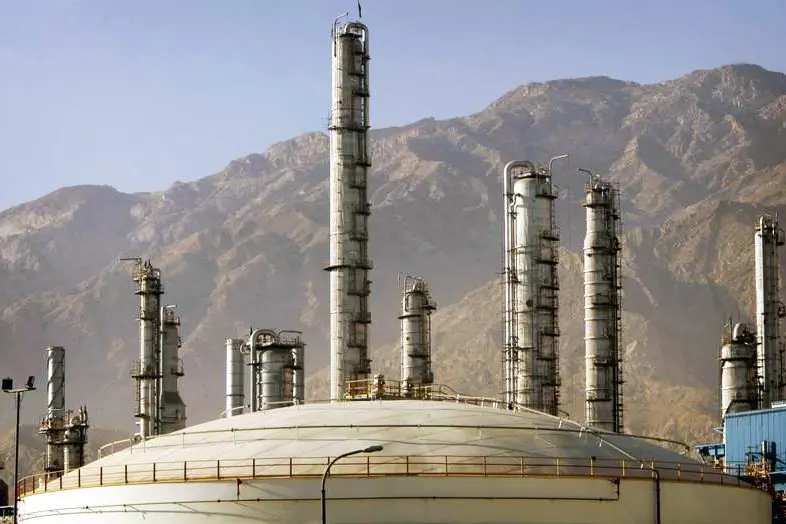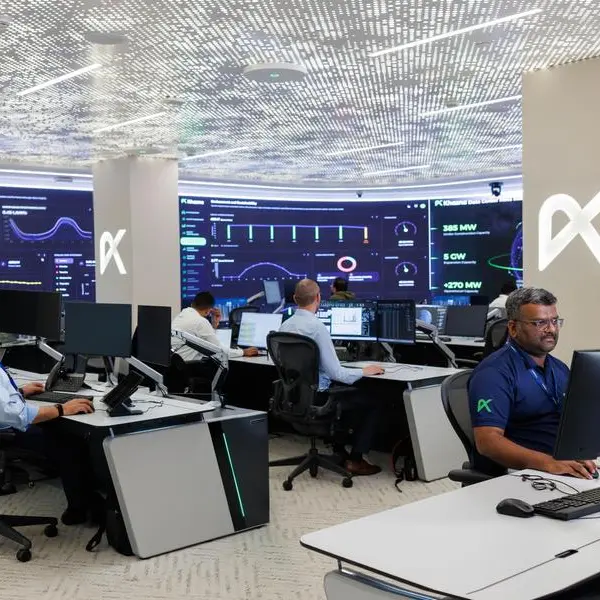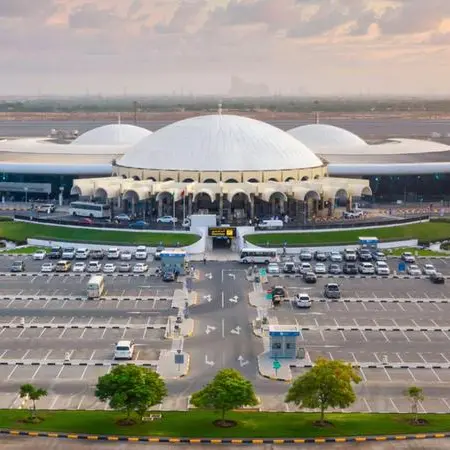PHOTO
After years in the wilderness, Iran seems poised to return to the international fold. Mena Fund Manager looks at the issues facing investors and the asset manager community
Celebrations on the streets of Tehran followed news that negotiators from Iran and the P5+1 group had finally struck a deal that could result in the lifting of economic sanctions in Iran in exchange for greater co-operation over its nuclear programme.
Although the lifting of sanctions is some months away, the prospect of yet another large market in the region opening up has many investors and asset managers already thinking about the potential for returns.
Iran has one of the largest economies in the Mena region, yet sanctions have hit it hard and limited its economic potential. Foreign direct investment (FDI) inflows fell to its lowest level since 2008 last year, dropping to $2.1bn, according to data from the UN Conference on Trade and Development. A year earlier it had seen inflows of $4.6bn in 2013.
While the economy grew by 3.0% last year, the IMF has forecast growth of just 0.6% in 2015. The lifting of sanctions would undoubtedly boost the Iranian economy. London-based consultancy Capital Economics believes GDP will grow by up to 8% per annum in the short-term, although structural issues may need to be addressed to maintain that level of growth.
The deal could see oil revenues frozen abroad repatriated, with some estimates ranging up to $100bn. Iran, which has some of the largest natural gas and oil reserves in the world, could also ramp up production once the deal has been lifted.
"Ex-sanctions it's the most interesting markets I can see anywhere in the world," says Dominic Bokor-Ingram, portfolio adviser at London-based Charlemagne Capital. "It's one of the most diverse economies; it's very different from the rest of the Middle East. Iran is 90% self-sufficient in food and other goods.
"It is a country of 80 million people, it's as big as Germany and has the best standards of education anywhere in frontier markets."
The opportunity
Investors and asset managers remain bullish for Iran's prospects post sanctions, rating it as one of the more attractive countries among the emerging and frontier markets. The Tehran Stock Exchange, which began openly courting foreign asset managers earlier this year, is likely to draw much interest.
"The Tehran Stock Exchange has 316 constituents - with a $26bn free-float on a total $103bn market cap," says Oliver Bell, manager of T. Rowe Price's Middle East & Africa Equity and Frontier Markets Equity funds.
"Without any foreign participation, the market on average trades $100m per day, but has been as high as $400m. It could make up 25% of the MSCI Frontier index if it were to fully open up to foreign investors."
Xanyar Kamangar, founding partner of start-up Griffon Capital, adds: "Valuations right now are at a P/E of around five times, but that is coupled with a dividend yield of somewhere between 15-17%. If you look at Saudi it's around 17 times, if you look at UAE it's around 20 times, and if you look at other markets it's north of 10 times. Therefore we think there's the potential for a rerating here."
Charlemagne's Bokor-Ingram says Iran is appealing because normally very cheap markets are underdeveloped and very liquid markets are very expensive.
"You don't find markets that are very well developed - the infrastructure of the Iranian market is as good as any emerging market - coupled with very cheap valuations," he explains. "The opportunities used to exist before frontier markets were discovered, but they don't exist anymore."
Griffon's Kamangar says there is a lot interest in anything that relates to the consumer sector. "You have an population which is very consumer savvy and with growing discretionary income. If you can get good quality goods in the shops they will buy them," he explains.
"Another sector that would benefit from the opening up is the financial sector. The old connection between the Iranian financial sector and international banks has been cut. Iranian banks have been disconnected from Swift since 2012.
"This connection will be reinstated as soon as the deal is implemented, this will have a very positive effect on the financials of these banks who will start providing trade finance and letters of credit as international trade picks up. "These are all the services which they were barred from providing at the international level."
Other sectors likely to benefit from the lifting of sanctions are likely to include commodities-focused companies from the oil and gas sector, which is likely to ramp up production in the short-term.
While the oil and gas sector may seem a natural recipient for new funds, some have warned of the need for further investment for the ageing infrastructure before production levels can be raised. The country's manufacturing sector is also tipped as one for growth once sanctions are lifted.
"Less than 15% of Iranian GDP is actually energy; it has a huge manufacturing sector. Before sanctions were brought in Iran manufactured 1.1 million cars," explains Bokor-Ingram.
Elsewhere, Iran's consumer sector may also be one of the beneficiaries of the lifting of sanctions as companies seek to meet demand for new products and services from a young population with growing disposable income.
"On the consumer side, we see major prospects as the economy normalises, access to technology improves and companies begin to invest," says T.Rowe Price's Bell. "There is an opportunity to capitalise on country's high mobile penetration and translate it into high broadband take-up, which currently stands at just 9%.
"Its formal grocery penetration of less than 20% could increase substantially as well, to move more in line with other emerging and frontier peers."
Making plans
A number of asset managers outside of Iran have already begun to make plans on how to offer clients access to the market. Visits to the Iranian capital Tehran in recent months have increased as authorities and companies seek to attract foreign investors and companies.
"Iran is becoming increasingly more popular. During my visits, I have seen or heard about many people, especially from Europe, visiting Tehran," says Emre Akcakmak, portfolio manager at emerging and frontier markets specialist East Capital. "I frequently read about big business delegations visiting. This interest started well before the sanctions deal."
Interest has continued to build now a deal has been reached and a timetable agreed. Asset managers have started to explore options that will give them a foothold in Iran.
Charlemagne Capital was one of the first Western asset managers to steal a march on rivals in Iran following the announcement of a deal with Tehran-based financial services group Turquoise Partners. The partnership will see the launch of an Iran-focused product range to be offered to international investors.
Bokor-Ingram says there has been much interest in the products from investors outside of Iran. "There is a huge diaspora of very well-educated Iranians who are looking to go back and do business back in Iran," he says.
Iran is also beginning to attract interest from the alternatives space. Private equity seems set to take off in the country, while hedge funds too have begun to look at opportunities for their clients.
"There is no private equity fund per se in Iran at the moment," says Griffon's Kamangar. "Our private equity fund is going to be launched by the end of this year, depending on the timing of lifting of certain sanctions, and we will probably be the first private equity fund focused on the Iranian market.
"What we have available is access to a pipeline of attractive deals, primarily privatisations and family businesses."
He adds: "Iran is going to go through a second wave of privatisation. It has already been through a primary wave of privatisation however there is going to be another one in the short to medium term.
"In addition, there is a significant number of small-to-medium sized family businesses who are dealing with issues around succession."
Iran already has a healthy mutual fund industry, but unlike other countries, assets remain low. An estimate by Turquoise Partners reported the mutual fund industry had an AuM of $200m. However, there have been innovations in the domestic funds industry with the launch of new structures such as exchange-traded funds.
"We have more than a 100 local funds but even though the total number of these funds is high the total assets under management of these funds is very low compared with other parts of the world," says Kamangar.
"In a market of this size with very little foreign investment, there is a big element of retail investment and where there is retail investment the government and the regulator overcompensate by overregulating the market. That is exactly what has happened in Iran."
Further challenges
The lifting of sanctions is unlikely to solve all issues for investors. Many other challenges must be resolved before investors and asset managers are able to take advantages of Iran's growth potential.
"Iran is already a competitive market. Foreign investors who think that coming they will come in to and will easily grab market share are may be hugely mistaken," says East Capital's Akcakmak. "There will be a lot of success stories but there will also be a lot of failures."
Akcakmak says the economy could also face a danger of overheating from a surge of foreign investment and the return of oil revenues, although that is not likely to be a concern in the short term.
More importantly, resolving some of the financial issues will be a challenge for the Iranian market. Some Iranian managers warn that although the financial sector is well developed, being cut off from international markets for so long will take some time for the country to adjust. International standards and practices may be lacking while other important market institutions, such as custodian banks, are not yet found in the Iranian market.
"For institutional investors it's fundamental that the processes, the policies and the structure are done correctly," says Kamangar. "Our focus from Day One on making sure that we're doing things the right way and in essence creating a platform that is purpose built to the standards of international, institutional investors."
He adds: "For international investors to enter the market, the regulation is there but having said that the experience is lacking.
"There is considerable bureaucracy and that's why international investors need local partners who are able to navigate the labyrinth to do deals and create value in the stock market."
While the deal has provoked criticism from US and Iranian hardliners, support for a deal seems strong. Indeed, one of the biggest issues for its success is likely to depend on the willingness of Iranian authorities to abide by the terms and open up the nuclear programme for observation.
"The biggest challenge in the short term is if Iran doesn't deliver on the terms of the agreement," adds Akcakmak. "The agreement is still conditional as both sides need to wait until December and then it will come into place.
"If the West thinks that Iran has not been delivering on the deal, the sanctions will not be lifted."
MENA Fund Manager 2015





















